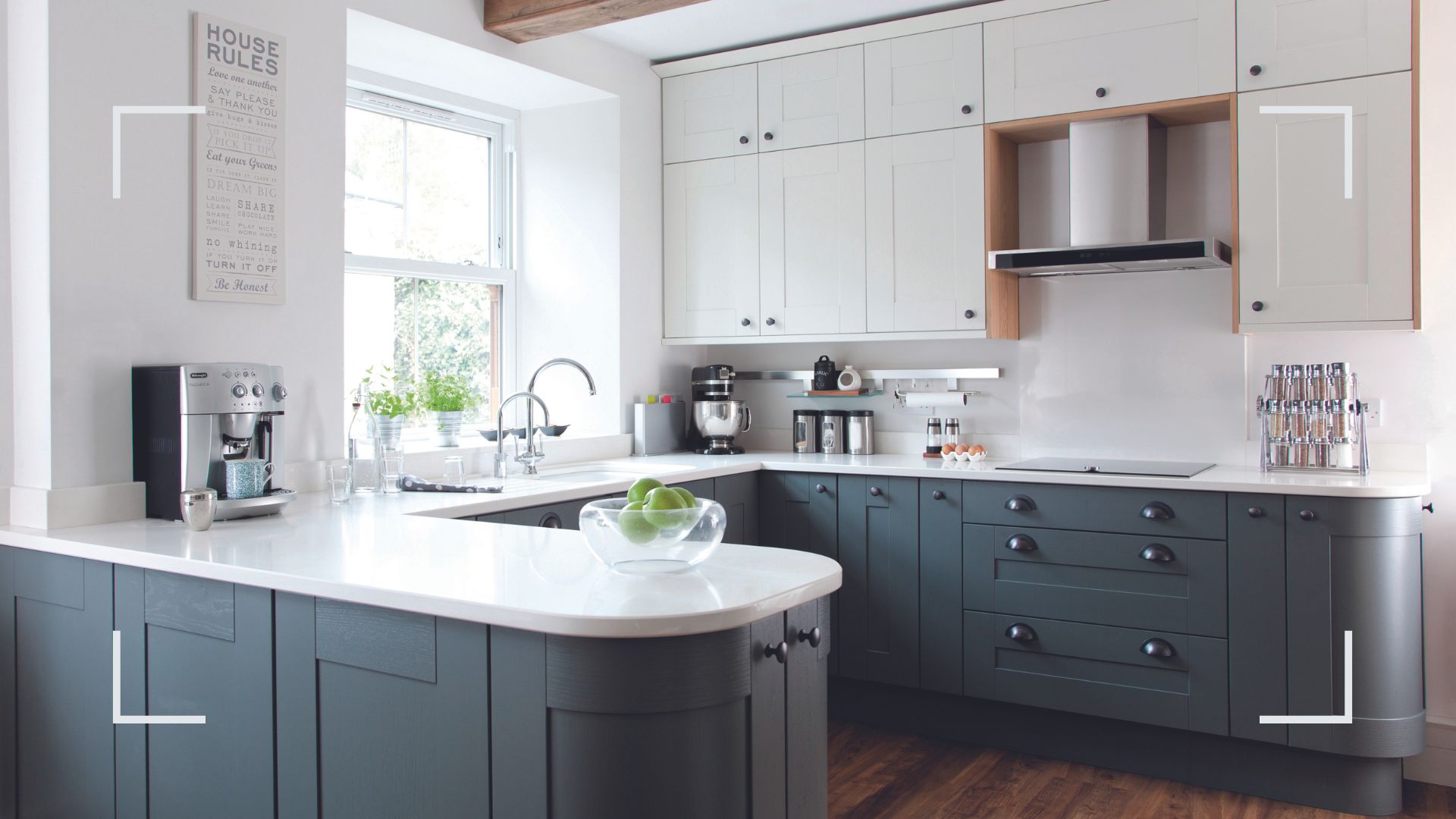
The kitchen is one of the hardest places to declutter, mainly because there are a lot of awkwardly shaped essentials in use all the time. From colanders and frying pans to bulky machines and gadgets commandeering our countertops, a lot is going on.
To help you organise your kitchen and get motivated to declutter, we have asked the experts to share which items they think we can take out of our kitchens right now, to free up valuable space.
Clearing the clutter can make a small kitchen look bigger and, most importantly, make cooking more enjoyable. As professional home organiser Tina Priestly explains, it can also bring positive energy into your home.
"Creating a refreshed, clutter-free space is not just about aesthetics – it's about coming home to clean and enjoyable space," says Tina. "Your home is supposed to be your sanctuary and castle. When your home is refreshed, you can feel refreshed."
5 Things To Remove From Your Kitchen To Free Up Space
Organising your cook space so that it really works for you and your household's routines will make a big difference to how you feel about it. Keeping your kitchen counters clear could even improve the quality of your cooking, although we probably shouldn't make any promises there.
So, whether it's taming the junk drawer or clearing out the pantry, here are the things to take out of your kitchen to conjure up space from nowhere, with expert tips and product suggestions to help you make the most of the space you have.
1. Appliances you rarely use
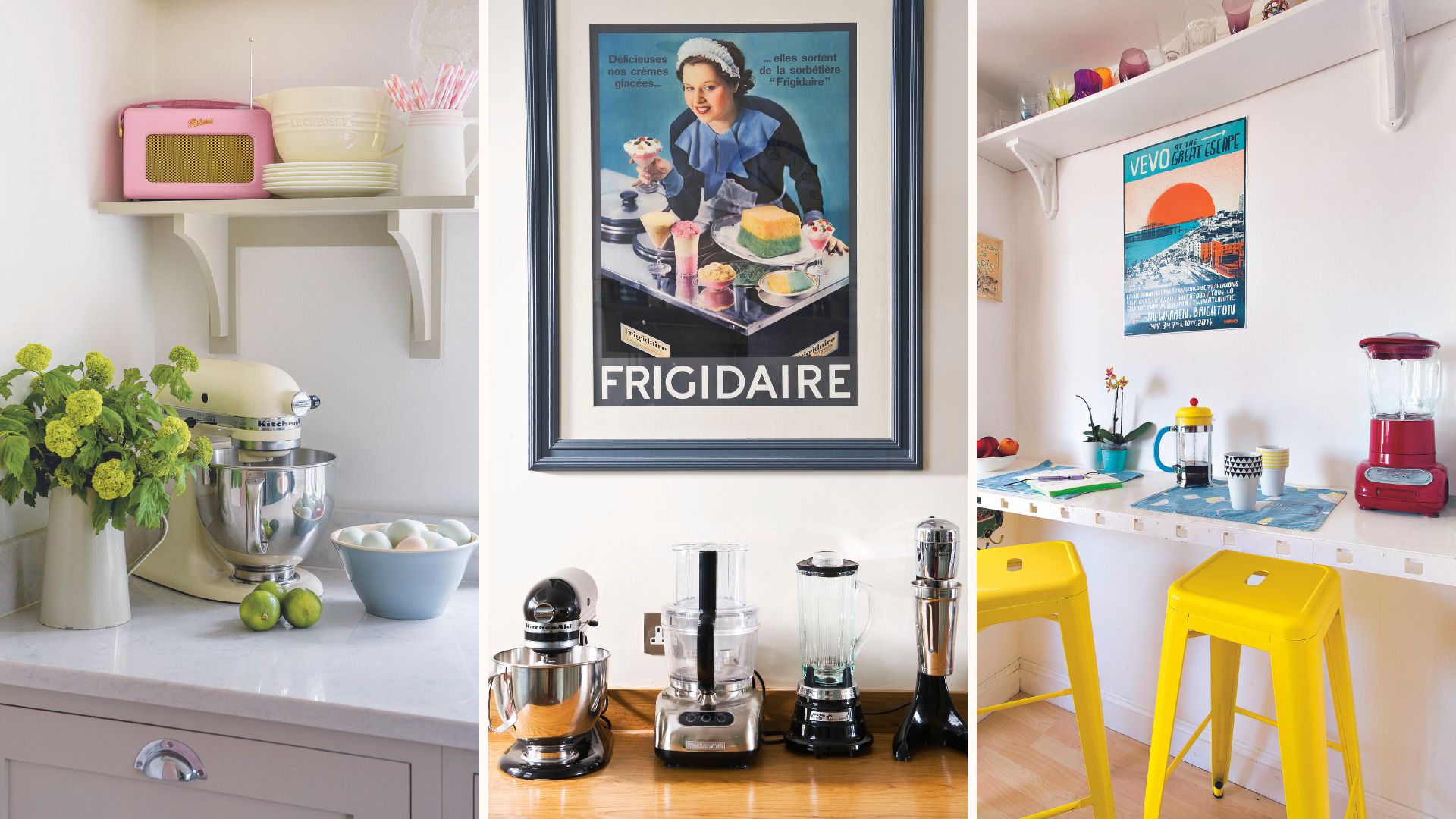
We often hold onto appliances 'Just in case' but they take up valuable space in our cupboards. Kitchen cabinets and shelving should be reserved for items we use regularly, and keeping things in them that we're not using is a kitchen organisation mistake to avoid.
"Consider removing rarely used appliances such as blenders or toasters if they are not used daily," agrees professional home organiser Barbara Brock. Take broken air fryers and slow cookers to your local recycling centre, or if they're still in relatively good condition, sell or donate them to charity.
This does involve some letting go and acceptance – "If you impulse-purchased a waffle maker three years ago, it’s time to accept that you might just never be the waffle-making person – and give yourself the space to explore a new kitchen appliance!" says interior designer Floss Kelly at TileCloud.
For kitchen appliance trend items you want to hold onto despite only using them occasionally, whether your best blender or Bake Off-inspired best stand mixer, see if you can store them somewhere else like a cupboard in the hall so they're not taking up space you need for day-to-day cooking.
2. Old cookbooks
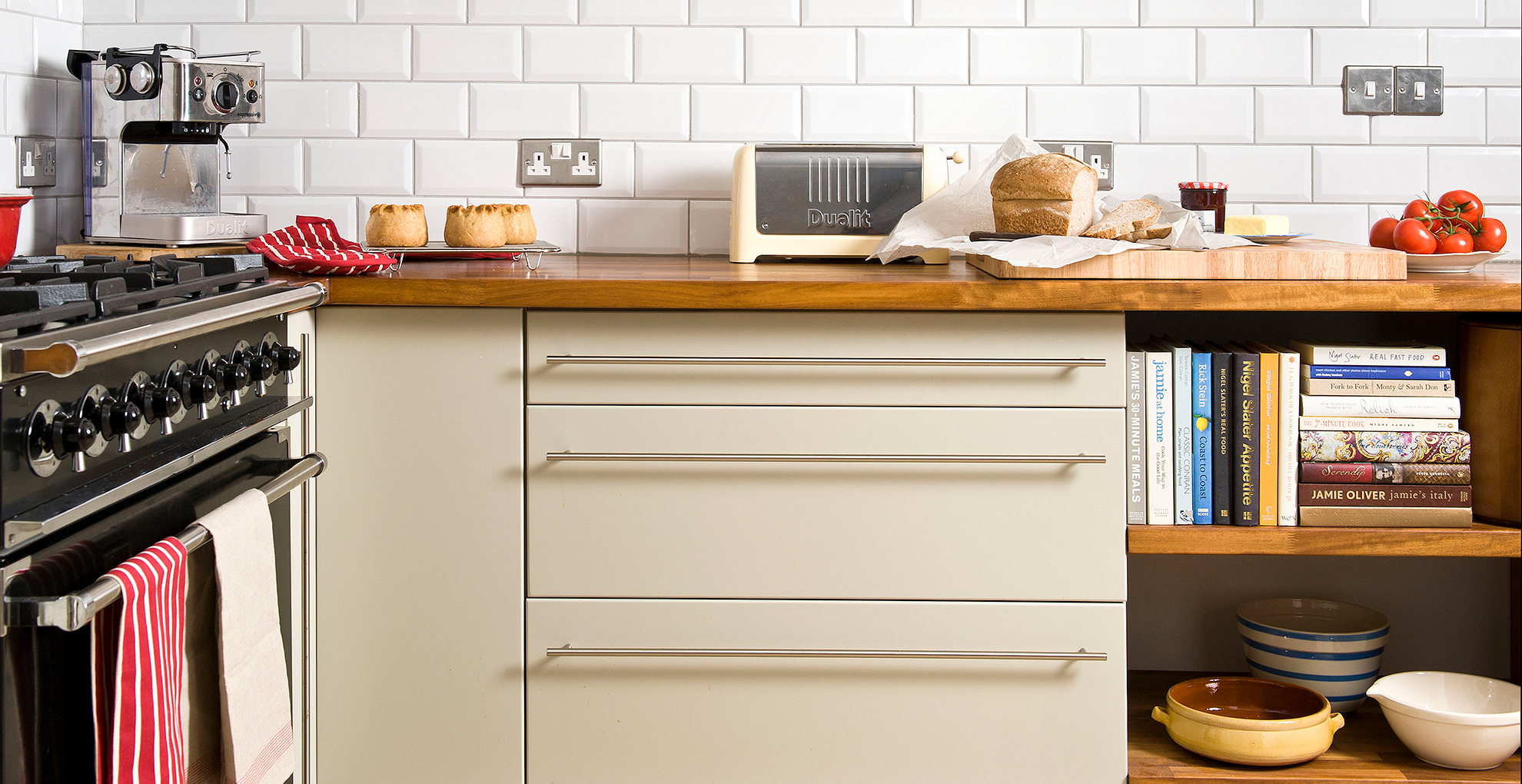
Lots of us have counters and shelves cluttered up with cookbooks we rarely use (or cookbooks that we go to over and over again to make the same favourite recipe). While we'd always recommend having cookbooks within reach to provide inspiration, an edited collection of three or four is all you need, so consider passing on those that don't get used so often.
"When it comes to creating more kitchen space, it's all about ditching the unnecessary," comments Tina Priestly. "Old or outdated cookbooks, plastic bags from stores, and those kitchen gadgets collecting dust – let's say goodbye."
You might prefer to keep your cookbook collection somewhere else nearby, like on some shelving in the living room so you easily can go and get the book you need. We love displaying cookbooks on book stands, which are functional and great-looking.
If you find it hard to decide if a cookbook should stay or go, we recommend trying some professional decluttering methods, such as the 90/90 decluttering rule, which forces you to ask yourself if you've used it recently and if you're likely to need it any time soon.
RRP: £20 | This stylish cookbook stand was designed by Sebastian Conran for Argos. The wood tones bring a natural, warm look to kitchen counters and the back features handy cook's measurements. It folds flat for easy storage.
RRP: £10 | This fun, contemporary cookbook stand is freestanding and fits standard-sized cookbooks and tablet devices for following recipes. The design is handy for keeping a favourite recipe page open and on display in the kitchen.
RRP: £18 | This mango cookbook stand is designed to help you work efficiently and keep pages clean in the kitchen. It's an attractive and functional addition to kitchen islands and tables with an elegant design.
3. Expired food in the pantry
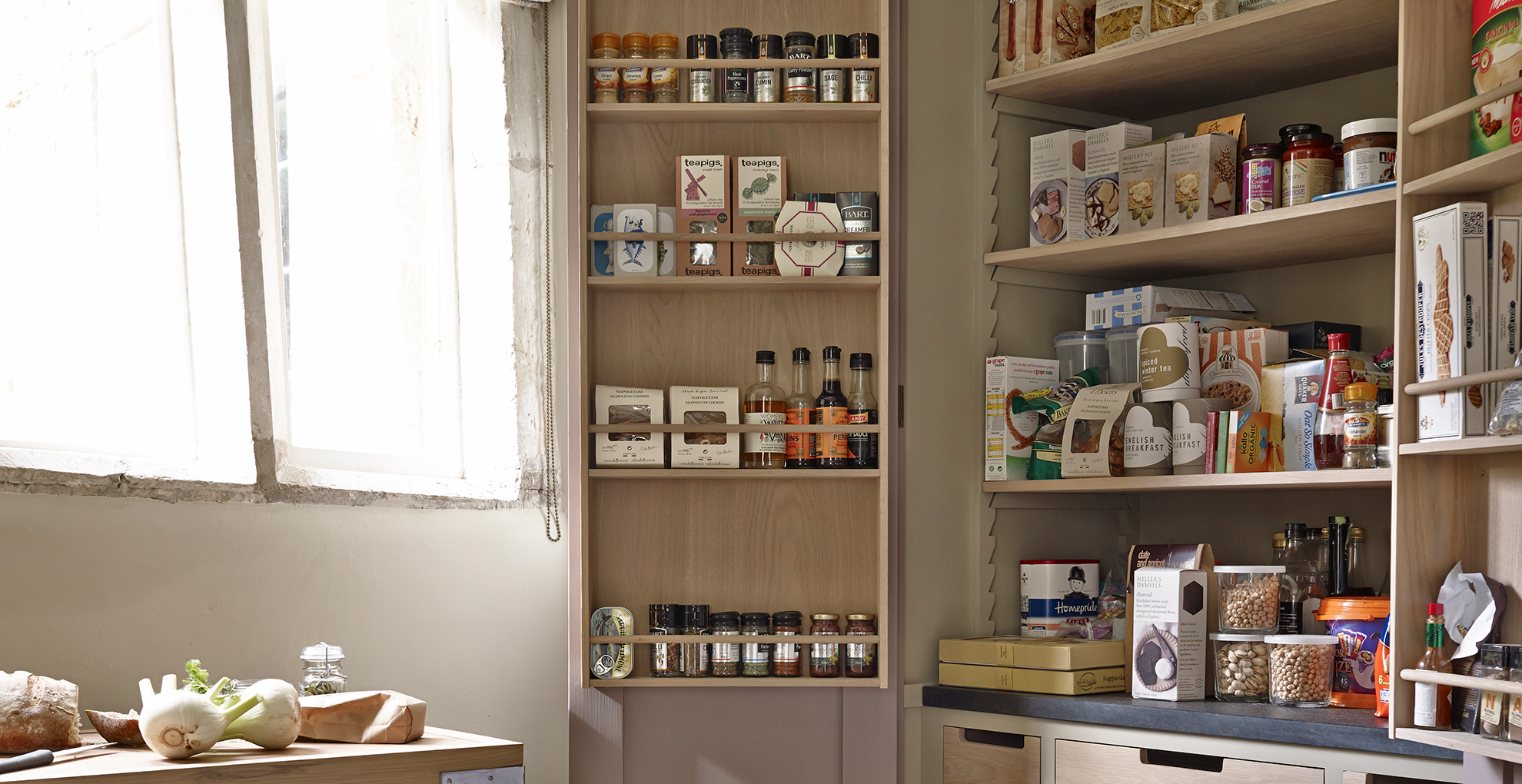
Out-of-date cupboard supplies are a no-brainer to declutter, so the pantry or food cupboard might be a good place to start when having a clear-out. Anything past its best should be removed, and this will free up lots of space and help spur you on – not to mention prevent common kitchen cupboard pests.
"Make sure you are regularly cleaning out your expired pantry goods to give yourself more room for future shopping endeavours," says interior designer Floss Kelly. "Check expiration dates and remove old spices to free up cabinet space and make sure that all your ingredients are fresh," Floss says.
When organising your pantry, it's a good chance to give shelves a thorough clean, wiping up any crumbs and spills and checking for pantry moths.
To make better use of the space, consider employing some organisational helpers – we have rounded up some of our favourites below. These help to use the vertical space in your kitchen, which can often go under-utilised.
RRP: £25.99 | These cupboard and shelf organisers are a great way to make the most of vertical space, and they help to keep various jars and tines visible. They are stackable and have a modern design that will go with your kitchen, whatever your home's aesthetic.
RRP: £2.50 | These under-shelf organisers are a real game-changer, and they currently have 50% off at Dunelm. Their arms can be simply slipped over a shelf to provide a spacious basket underneath, where you can store and access small items. Measure your pantry space carefully before purchasing.
RRP: £29.99 | This turntable is useful for organising loose items, such as herbs and spices. It helps to keep cabinets and counters tidy and makes it easy to find the items you need. It also has a raised rim to stop anything from falling off.
4. Duplicates
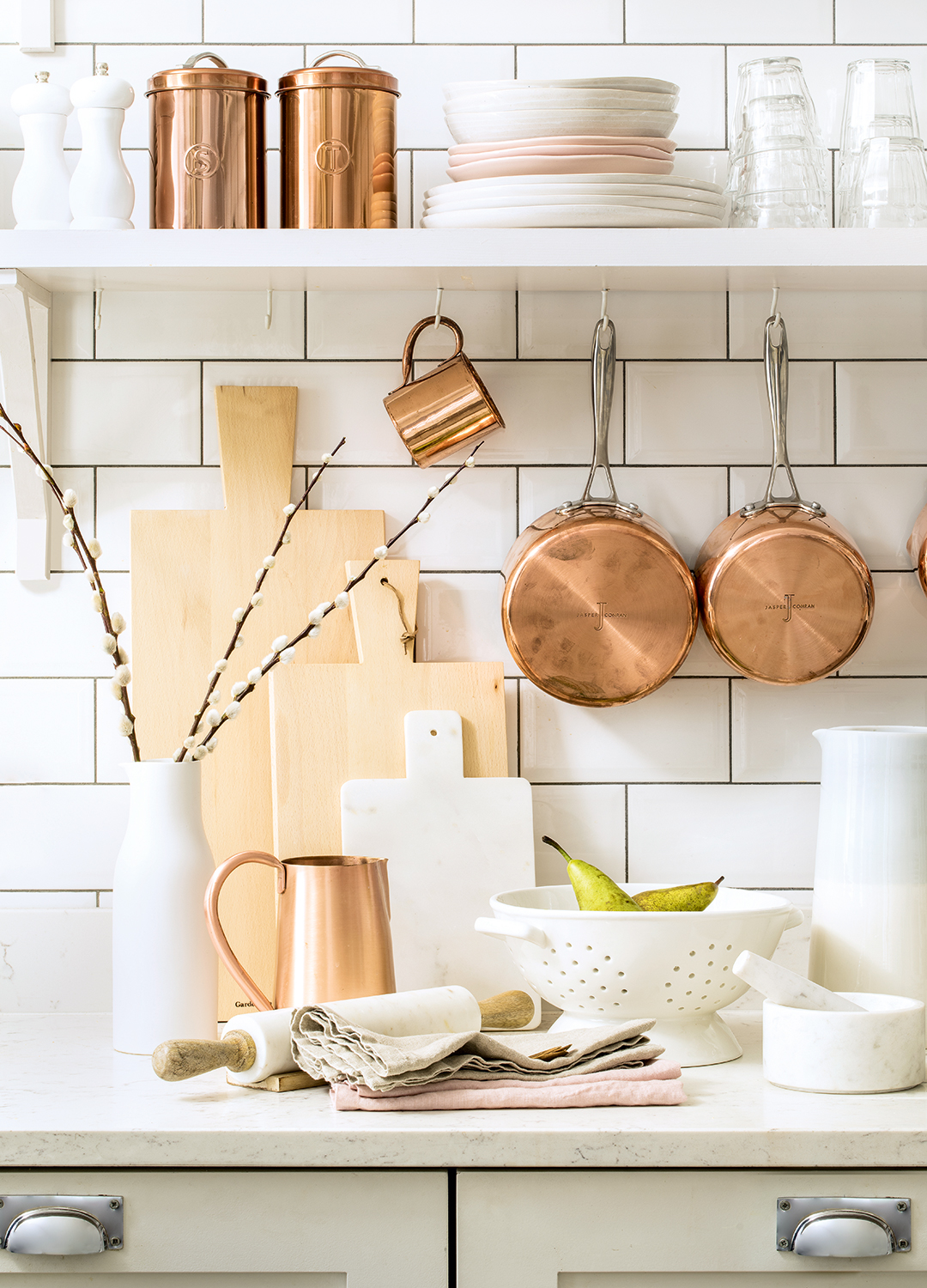
We all have our 'thing' that we keep too many of – common kitchen items we start to collect without even realising are spatulas, wooden spoons, cheese graters and reusable water bottles.
Whatever your thing might be, see if you can narrow down your collection. Keep the best and donate the rest.
"Get rid of Tupperware and plastic containers, multiple knife blocks, and any duplicates cluttering your drawers and cabinets," agrees Tina Priestly. "By eliminating these extras, you'll instantly free up space and create a more organised space."
Tina suggests using open shelving, pullout storage, and utilising walls for knife storage to free up some space. It is a simple step but effective in decluttering your home and making cooking more enjoyable.
5. Seasonal kitchen items
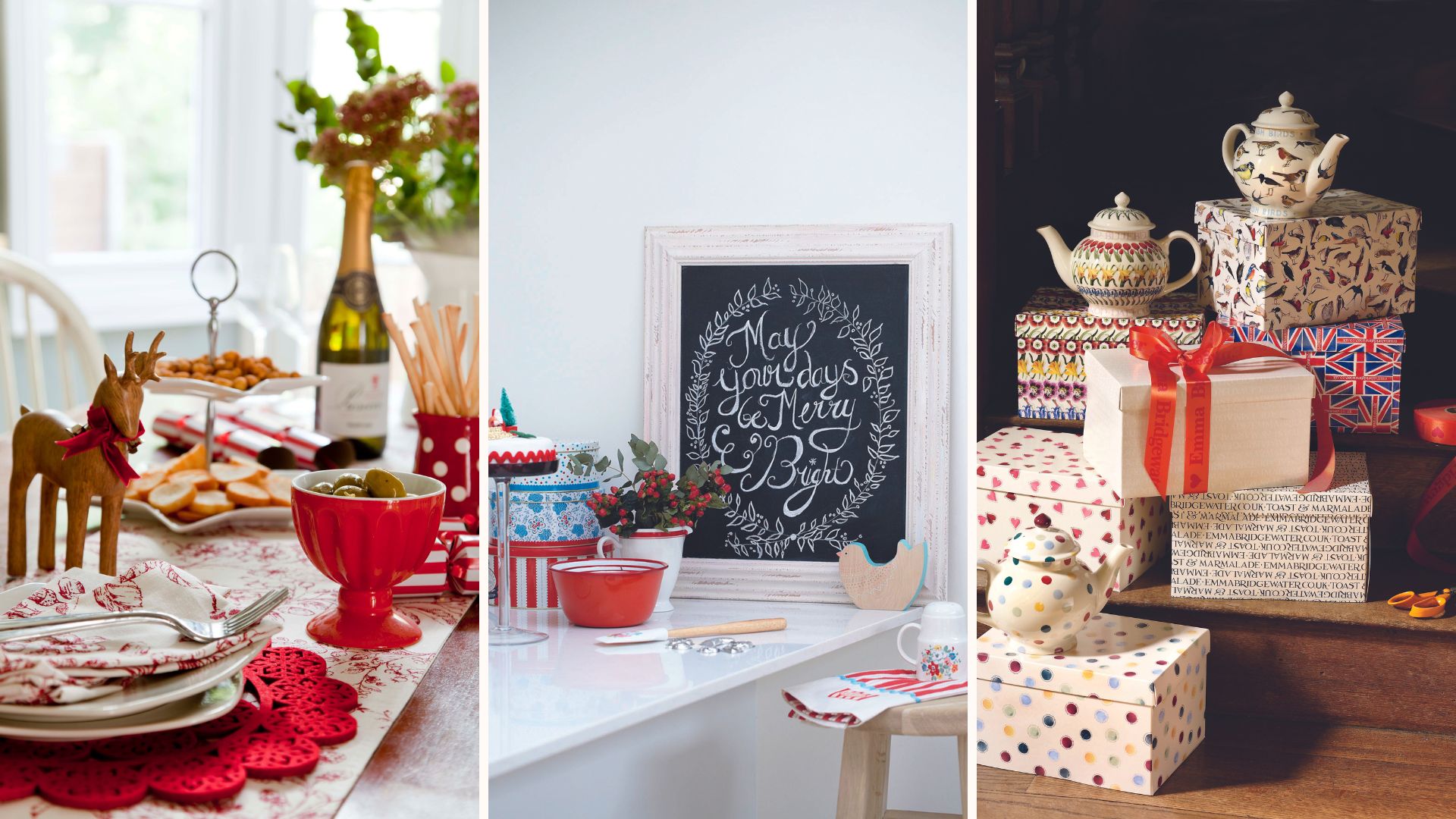
Seasonal items often end up at the back of the cupboard for most of the year. Save space in the kitchen by storing them with the decorations, or in a large plastic box in the garage.
These rarely-used items shouldn't 'live' in the kitchen as festive chocolate moulds will only get in the way when you're trying to get a pan out of the cupboard to cook dinner.
"As you assess your kitchen, identify items that are season-specific, such as holiday cookie cutters, turkey basters, and even appliances like crock pots, which tend to be used more in colder months," says decluttering expert Katy Wells.
"After the season ends, declutter any of these items that you didn't use. For those you keep, store them in a less frequented area of your home or even on a high shelf in your kitchen. This ensures your kitchen is only filled with items relevant to the current season and your current needs."
FAQs
How can I make decluttering feel easier?
Kitchen decluttering can feel difficult, especially when you have lots of niche gadgets that only have one purpose. You might like to try the 'relevancy rule', coined by decluttering expert Katy Wells.
"Begin your decluttering by applying my Relevancy Rule," she says. "Ask yourself, 'In the last 6-12 months, have I had the opportunity to use this item?' This includes gadgets, utensils, appliances and those 'just in case' items.
"If you've had the chance to use it but haven't, it's a clear sign that it can go. This rule helps you make decisive, practical decisions about what truly deserves a place in your kitchen."
For more inspiration, you can try out some of the techniques cleaners use to keep their homes tidy all the time and note our top tips on organising your life.







